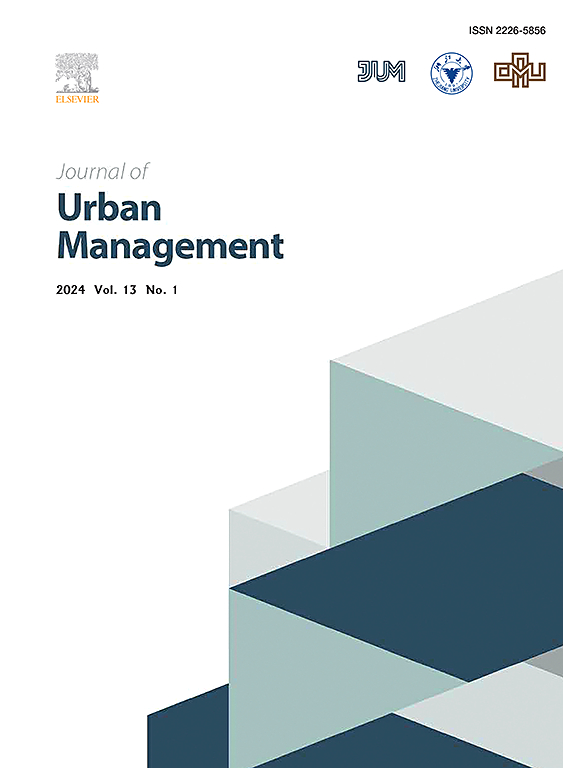理解城市公正转型的动态:基于潜在狄利克雷分配(LDA)的跨学科分析
IF 5
2区 社会学
Q1 URBAN STUDIES
引用次数: 0
摘要
尽管存在关于城市正义转型的文献,但在分析城市转型中正义主题的演变趋势和轨迹方面存在知识缺口。本研究建立了一个综合的分析框架,利用LDA识别与城市公正转型相关的新兴研究趋势。基于社会-生态-技术系统(set)分析框架和正义相关理论框架,本研究考察了城市背景下正义转型研究的演变特征和突出问题。我们发现,set中的E-T维度越来越受到研究人员的关注,而城市正义中的包容性和恢复性维度则得到了更具体的分析。研究不仅明确了城市转型过程中的复杂趋势和动态变化,而且明确了未来研究的重点领域。它为城市转型领域的学者和实践者提供了宝贵的见解和参考,旨在促进更可持续、更公正的城市地区的发展。本文章由计算机程序翻译,如有差异,请以英文原文为准。
Understanding the dynamics of urban just transitions: An interdisciplinary analysis with latent dirichlet allocation (LDA)
Despite the presence of literature on just transitions in cities, the knowledge gap exists in analyzing the evolving trends and trajectories of justice themes in urban transitions. This study develops a comprehensive analytical framework to identify the emerging research trends related to urban just transition by using LDA. Based on the socio-ecological-technological system (SETS) analytical framework and justice-related theoretical frameworks, this research examines the evolving characteristics and prominent issues in existing studies on just transition in urban contexts. We find that the E-T dimension within SETS is receiving increasing attention from researchers, while the inclusiveness and restorativeness dimensions within urban justice are more specifically analyzed. The study not only identifies the complex trends and dynamic changes in the process of urban just transition but also identifies key research areas for future investigations. It provides scholars and practitioners in the field of urban transformation with valuable insights and references, aiming to foster the development of more sustainable and just urban areas.
求助全文
通过发布文献求助,成功后即可免费获取论文全文。
去求助
来源期刊

Journal of Urban Management
URBAN STUDIES-
CiteScore
9.50
自引率
4.90%
发文量
45
审稿时长
65 days
期刊介绍:
Journal of Urban Management (JUM) is the Official Journal of Zhejiang University and the Chinese Association of Urban Management, an international, peer-reviewed open access journal covering planning, administering, regulating, and governing urban complexity.
JUM has its two-fold aims set to integrate the studies across fields in urban planning and management, as well as to provide a more holistic perspective on problem solving.
1) Explore innovative management skills for taming thorny problems that arise with global urbanization
2) Provide a platform to deal with urban affairs whose solutions must be looked at from an interdisciplinary perspective.
 求助内容:
求助内容: 应助结果提醒方式:
应助结果提醒方式:


